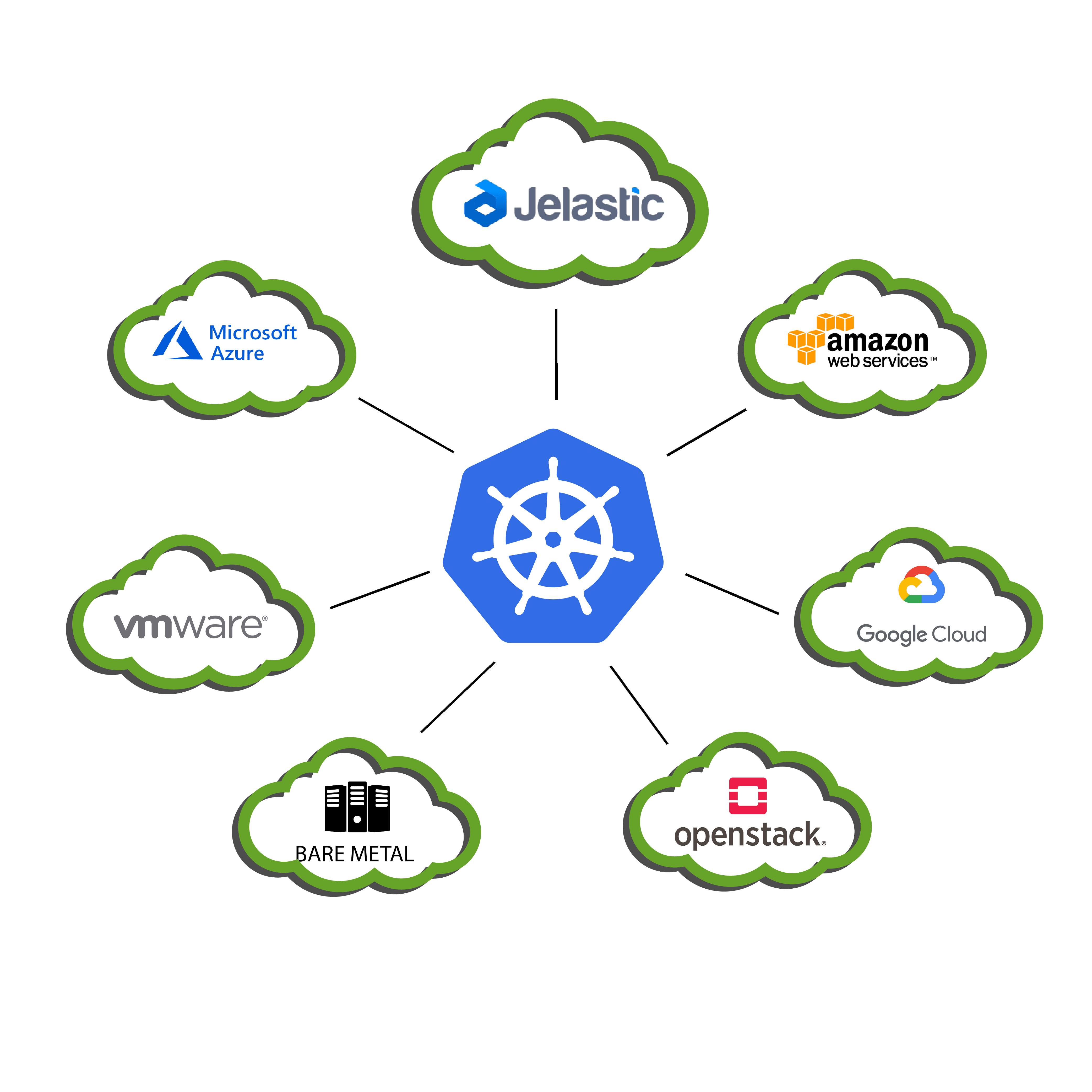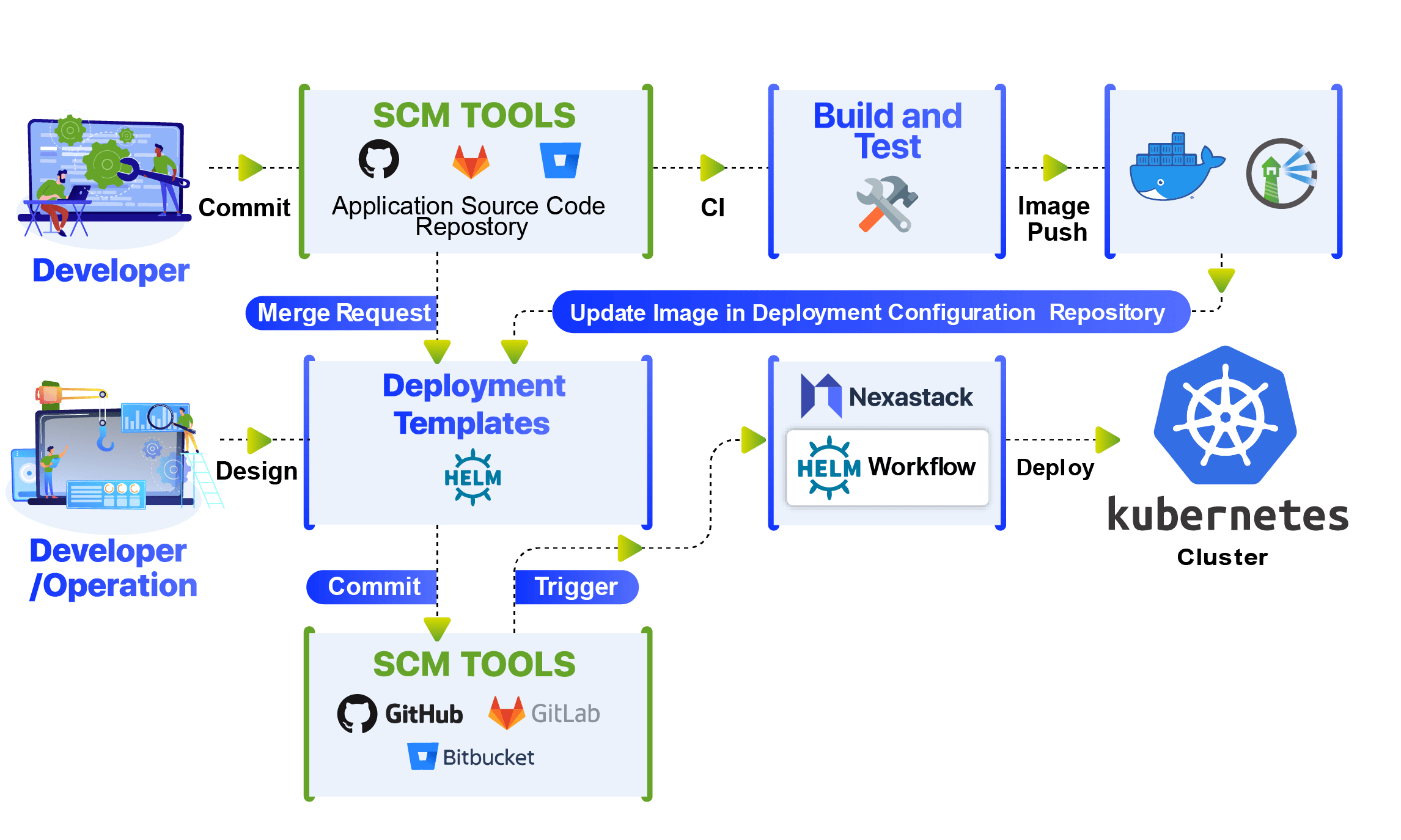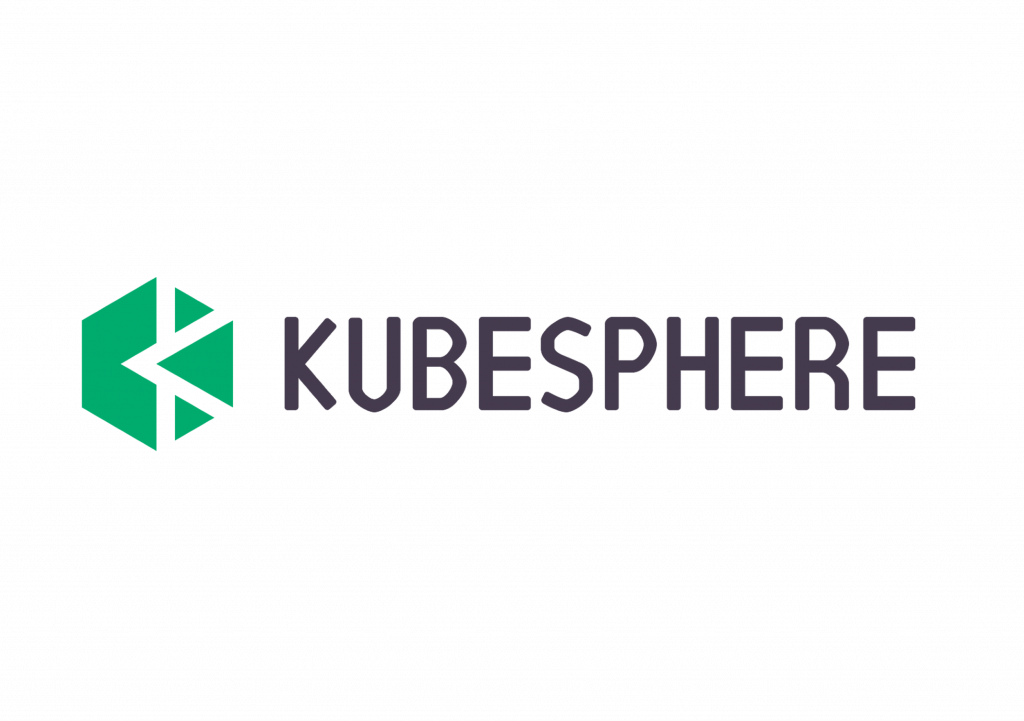Kubernetes
Kubernetes
What is Kubernetes?
Originally developed by Google, Kubernetes, or k8s as it is known for short, is a container orchestrator used to deploy our production applications in the cloud in an automated way.
This platform allows us to decouple and standardise our applications and services to be agnostic to the infrastructure and above all provides strong isolation and immutability of our artifacts to be able to deploy in any environment in a unified, simplified and unvaried way.


Kubernetes SaaS / Cloud
Its native implementation in the cloud through Kubernetes SAAS managed services such as EKS (Amazon Web Services), AKS (Azure), GKS (Google), etc… provide us with the automation of resource deployment (load balancer, storage management, etc.) in an automated way.
They also provide us with a layer of management over the control plan and its external auto-provisioned resources such as load balancers, storage class, etc. This point will be important to simplify the management and maintenance model, allowing you to focus your efforts on the design, architecture and service deployment layer without inheriting the complexity of cluster management itself.
GitOps vs K8S
The implementation of new development standards using GITOPS methodologies, where GIT is at the center as the single point of truth, has generated a large number of applications and formats that allow us to automate the entire CICD flow based on HELM manifests and charts that provide versioning in their environments and a deployment system following continuous deployment practices, ensuring the operation of their service at all times without outages or interruptions.
Another contribution of Kubernetes is the ease of visibility it provides in terms of monitoring.

Kubernetes with GEKO CLOUD
Our experience in microservices-based system deployments using Kubernetes
It is a cutting-edge technology but has been around long enough to ensure its use in real-world environments and has a large community behind it.
A number of cloud-managed K8s platforms are available to eliminate complexity.
Improve the portability and flexibility of your business by making it cloud agnostic. Reduce the level of friction and deploy as many clients or environments as necessary on different platforms.
Improve the traceability and security of your services by exposing those entities that require them and working internally with APIs and internal services.
Kubernetes Managed Services
Competitive advantages that Kubernetes brings to your business
Unify the GIT OPS deployment model
You can finally implement a single way to deploy your services in your company, which speeds up the onboarding of the technical team, the cooperation and the time to market to deploy new functionalities or new microservices.
High fault tolerance
The orchestrator itself manages deployments to ensure that they pass healthcheck tests before going into production or deploy new pods in case of a one-off incident to maintain the stated consistency in number of resources.
Responsibility / autonomy to the development team (namespaces + Quotas)
This technology supports development teams if good CICD criteria and pipelines are implemented with the philosophy “you build it, you run it!” by having full control and knowledge of the concrete flow and subsequent monitoring visibility to make decisions based on performance and quality criteria.
DRP or business continuity
Recovering to a Kubernetes-based platform has greatly simplified contingency or disaster recovery planning as we completely decouple the infrastructure, we simply need the data, a K8S and deploy our artefacts already stored in a repository.
High-speed growth (scalability) + Vertical node autoscaler + HPA
The proper implementation of a Kubernetes platform will allow us to self-manage the system to grow both in number of PODS and number of nodes in the cluster (vertical and horizontal growth dynamically), which will also provide us with high cost efficiency. Another important additional point is that the dynamic growth of the deployment pods is carried out in just a few seconds VS the traditional auto scaled platforms that took around 240 seconds to start up.
Marketplace application ecosystem
Thanks to the inertia that K8s has acquired within the developer community, there is a large list of applications that through HELM charts or through the Operators themselves, will allow us to deploy components such as databases, queuing systems, cache and long etcetera from a simple marketplace of components that you will have at your disposal.
- It has an initial implementation and operational cost.
- Operating a Kubernetes cluster without SaaS Cloud model having to administrate the management layer or control plane adds some complexity, if an entire K8S cluster goes down, EVERYTHING goes DOWN.
- It is desirable to implement it as a development model, not as a platform.
- It is a platform that was designed for small stateless apps and their interconnection. Ideally it is not recommended for persistent data systems in HA although it is a topic that is becoming more and more controversial and we can find customers with productive FULL systems deployed on K8s.
We are a partner specialising in Kubernetes
Kubesphere Partner
Geko Cloud is the 1st company in Europe to partner with Kubesphere, a distributed operating system that manages cloud-native applications, using Kubernetes as kernel.
Our experts will help you face the different challenges in your digital transformation.








